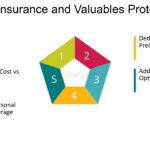
An Overview of Standalone Own Damage Car Insurance
Advertisment
- What is Standalone Own Damage Car Insurance?
Standalone Own Damage (OD) car insurance is a specific type of auto insurance policy designed to cover damages to your own vehicle. Unlike comprehensive car insurance, which includes third-party liability, standalone OD insurance focuses solely on protecting your car from various risks, such as accidents, theft, vandalism, and natural disasters. This policy is essential for car owners who want to ensure their vehicle is protected against unforeseen events without the added costs associated with comprehensive coverage.
- Key Features of Standalone Own Damage Car Insurance
2.1. Coverage for Own Vehicle Damages
This insurance policy covers the repair or replacement costs of your vehicle in the event of damage due to accidents, collisions, fire, theft, or natural disasters. It provides peace of mind knowing that you won’t bear the financial burden of unexpected repairs.
2.2. Flexibility in Premiums
Standalone OD insurance typically offers flexible premium options, allowing policyholders to choose coverage limits and deductibles that suit their financial situation. This flexibility can help manage costs while ensuring adequate protection for your vehicle.
2.3. Add-on Coverages
Many insurers provide additional coverages that can be added to standalone OD policies. Common add-ons include zero depreciation cover, which ensures you receive the full amount for your vehicle’s repairs without factoring in depreciation, and roadside assistance for emergencies.
2.4. No Third-party Liability Coverage
As the name suggests, standalone OD insurance does not include coverage for third-party liabilities. Therefore, it is crucial for car owners to have a separate third-party liability insurance policy to comply with legal requirements and protect against damages to other vehicles or injuries to third parties.
- Benefits of Standalone Own Damage Car Insurance
3.1. Cost-Effective Solution
For those who already have third-party insurance, standalone OD coverage offers a cost-effective way to protect their own vehicle without the expense of a comprehensive policy. This can lead to significant savings while still providing essential protection.
Advertisment
3.2. Focus on Your Vehicle’s Safety
This insurance allows you to concentrate on safeguarding your vehicle from damages. It provides the security of knowing that you have coverage specifically designed to handle the financial consequences of potential damages.
3.3. Claiming Process
The claims process for standalone OD insurance is generally straightforward, as it focuses solely on damages to your vehicle. This can simplify your experience during stressful situations, ensuring a quicker resolution.
3.4. Customizable Options
Standalone OD policies offer various options that allow you to customize your coverage according to your requirements. This ensures that you only pay for what you need, making it a suitable choice for many car owners.
- Considerations Before Choosing Standalone Own Damage Car Insurance
4.1. Assessment of Needs
Evaluate your driving habits and how frequently you use your vehicle. If you drive long distances regularly, a standalone OD policy might be more beneficial.
4.2. Compatibility with Third-party Insurance
Ensure you have an active third-party liability insurance policy, as standalone OD insurance will not cover any third-party damages. This is mandatory in many regions.
4.3. Comparison of Policies
Research and compare different insurance providers to find the best standalone OD policy that offers competitive premiums and extensive coverage options.
4.4. Claim Settlement Ratio
Investigate the claim settlement ratio of the insurer. A higher ratio indicates a better track record in settling claims, which is crucial during emergencies.
- Conclusion
Standalone Own Damage car insurance is an excellent option for car owners who want to protect their vehicle against damages without the added cost of comprehensive coverage. By understanding its features, benefits, and considerations, you can make an informed decision that aligns with your insurance needs. Always remember to pair it with third-party insurance to ensure full compliance with legal requirements and safeguard both your vehicle and financial interests on the road.
Advertisment











Post Comment